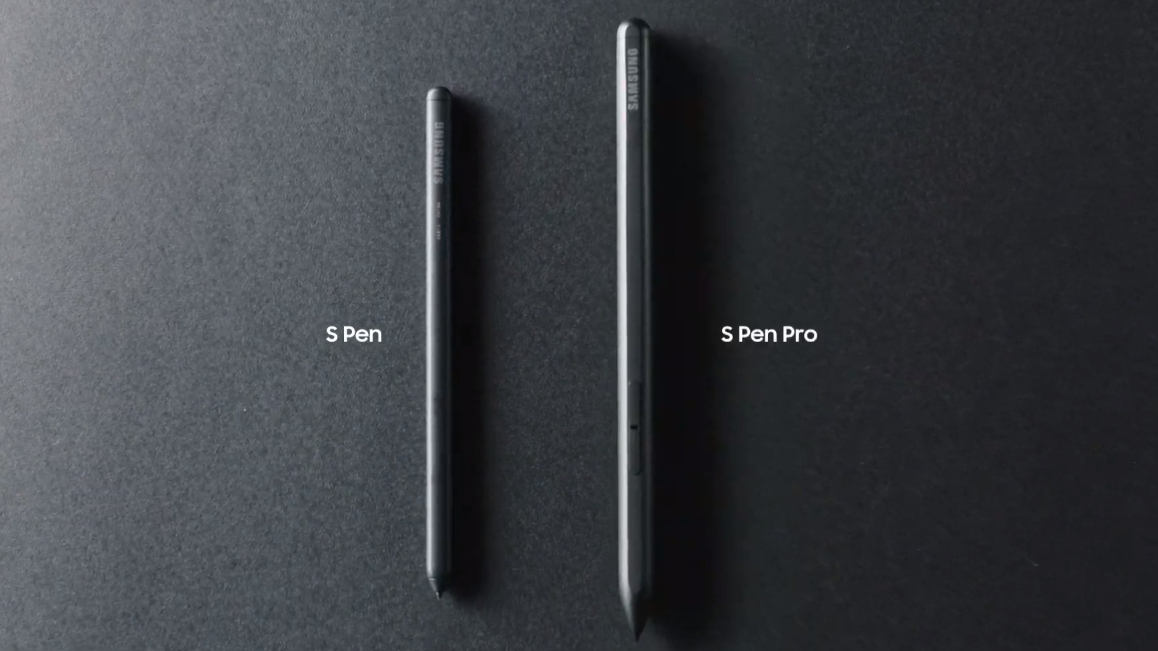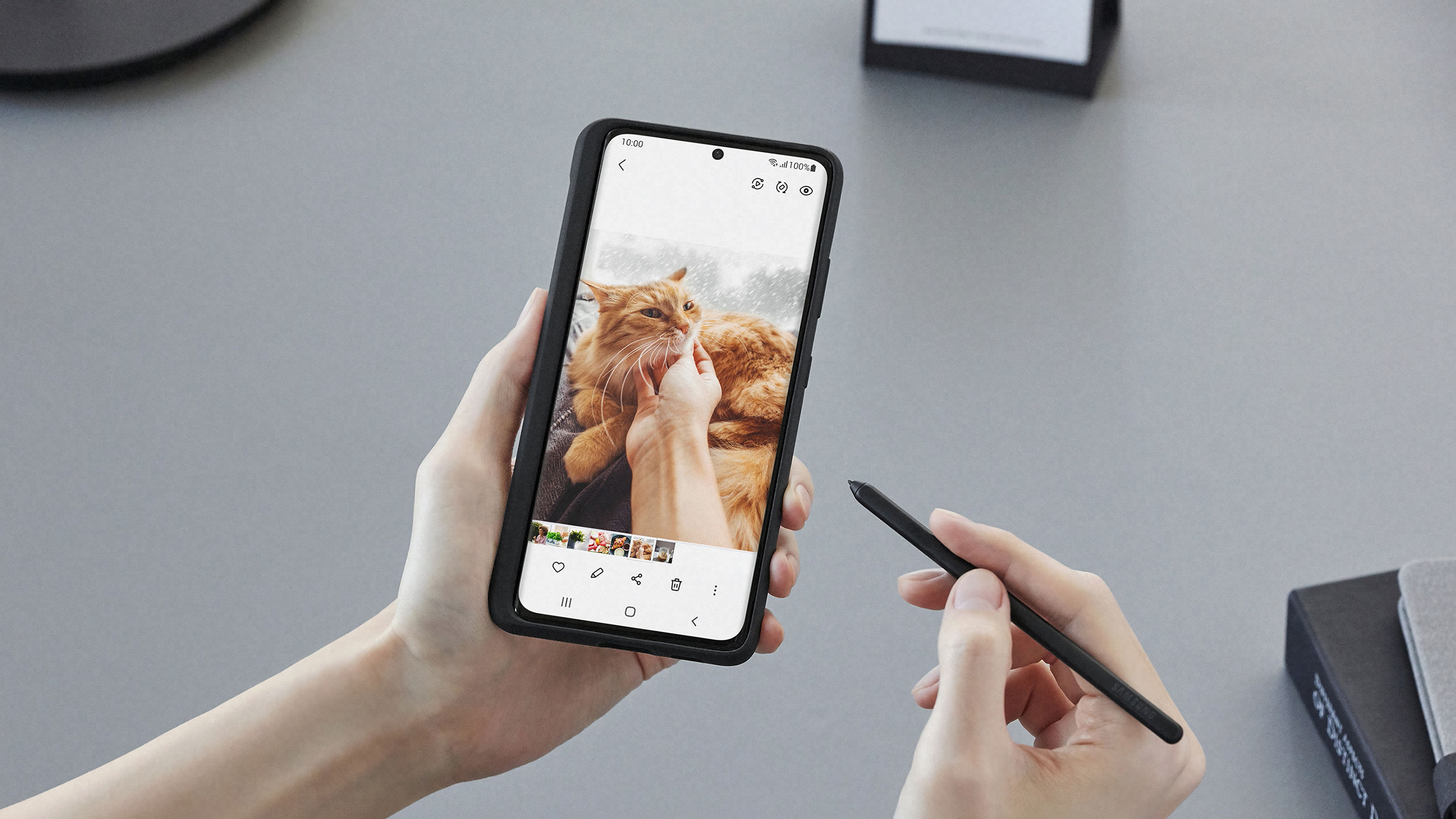Here's how the Samsung Galaxy S21 Ultra's S Pen Pro stands out from a standard stylus
Samsung's Apple Pencil 2

Bigger isn't always better, but for the Samsung Galaxy S21 Ultra it is, because when Samsung revealed its new super-phone is compatible with the company's S Pen stylus, it also unveiled the new S Pen Pro.
You'd normally get an S Pen with a phone from the brand's Note range, like the Samsung Galaxy Note 20, or with a tablet like the Galaxy Tab S7. They let you mark up documents, hand-write notes, control your device with in-air gestures, and more.
If you're buying a new Samsung Galaxy S21 Ultra you'll be able to use either the S Pen or this mysterious new S Pen Pro, which we haven't seen before. So what does the new professional-grade stylus do? Let's dive in.
- Check out our Samsung Galaxy S20 review
The price is write
One key difference between the S Pen and S Pen Pro is the price – while the former costs $39.99 / £34 (roughly AU$50), we can almost guarantee the latter will cost more. If you saw a previous version of this article, you'll notice the UK price is a little higher than before, and you're right - several hours after listing the Galaxy S21 Ultra's S Pen on its website, Samsung bumped the price up a bit.
Samsung hasn't unveiled an S Pen Pro price yet (or when it'll go on sale, for that matter), but we can almost guarantee it'll cost more than the 'standard' S Pen.
If you've got an older S Pen from a Galaxy Note or Galaxy Tab device, it's worth pointing out these will actually work on the Galaxy S21 Ultra - every single one, even really old ones.
Bigger is better

The Samsung Galaxy S21 Ultra's S Pen Pro is quite a bit bigger than your plain old 'standard' S Pen, as the image at the top of this article shows.
Get daily insight, inspiration and deals in your inbox
Sign up for breaking news, reviews, opinion, top tech deals, and more.
That should make it easier to grip and hold, as you can only really grip the current S Pen between your thumb and forefinger, which doesn't make for as easy writing as the Apple Pencil's longer and easily-gripped stem.
Overall, the S Pen Pro looks a lot more Apple-Pencil-esque, with the more tapered nub that resembles a real pencil. This should make it feel more natural for sketching and writing than the S Pen's current design.
It's worth pointing out that the Galaxy S21 doesn't have a slot to insert the S Pen or S Pen Pro, unlike the Note devices, so you'll probably want to buy a case that has a slot for them. Presumably, they'll come in different sizes for the smaller S Pen or larger S Pen Pro, which is something to pay attention to.
Some styli features
So what does the S Pen Pro actually do that the S Pen doesn't to transform your Samsung Galaxy S21 Ultra experience? The details are a little vague, but we know a few things about how they differ.
The standard S Pen doesn't offer the same features with the S21 Ultra that the Note 20 Ultra's stylus was capable of, like access to easy camera shortcuts (you can use the stylus as a remote shutter) and non-contact 'air notes' gestures.
To quote our initial S21 Ultra review 'Missing from the S21 Ultra are Bluetooth shortcuts for the camera and off-screen notes, like on the Galaxy Note 20 Ultra.'
It seems the S Pen Pro does have those features, though, to bring the full Note functionality to the Galaxy S series. Perhaps there are more perks the S Pen Pro brings, that will be unveiled then the product is released, but we don't know just yet. Samsung was content to tease us that the more premium stylus exists, but we'll have to wait until they release more info to lay out just how it differs from the standard S Pen we know and love.
Air Gestures won't actually be available straight away though, as they're coming via a software update later. Also, only the S Pen Pro has Bluetooth connectivity.

Tom Bedford joined TechRadar in early 2019 as a staff writer, and left the team as deputy phones editor in late 2022 to work for entertainment site (and TR sister-site) What To Watch. He continues to contribute on a freelance basis for several sections including phones, audio and fitness.